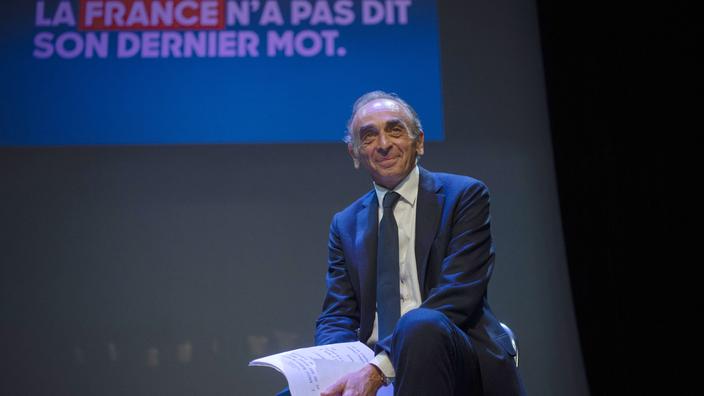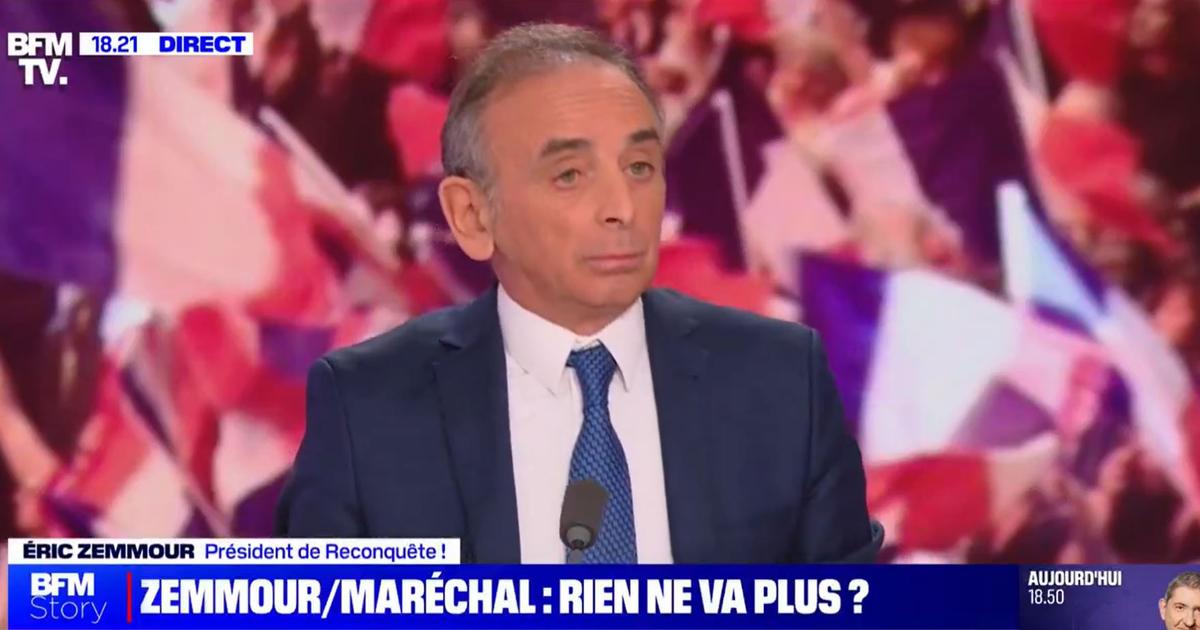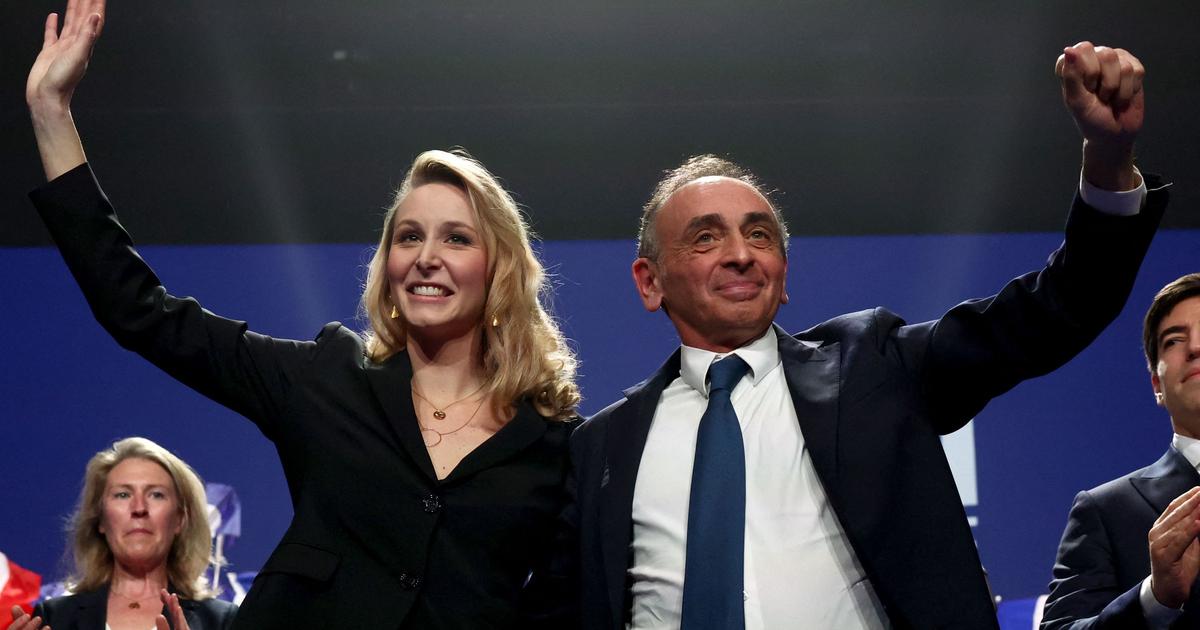François Kraus is director of the Policy and News Pole of Ifop.
It publishes the study: “Zemmourism Observatory” commissioned by LICRA
.
His Twitter account:
@ françois_kraus
.
FIGAROVOX. - Your study aims to be an “observatory of zemmourism”… What is “zemmourism”?
François KRAUS. -
If the notion of "zemmourisation of spirits" is already old - Jean-Christophe Cambadélis was already handling it in 2014 to denounce the influence of the theses of the polemicist at the time of the release of the
French Suicide -
, it is true that "zemmourism" is a recent concept insofar as for its use to have a meaning, a current of thought (ex: Gaullism, lepenism, sovereignty ...) must be based not only on ideas but also on potentials. voters. However, since his qualification in the second round is considered something of the order of the possible, the theses carried by the polemicist can no longer be reduced to the sole intellectual field. In view of the millions of votes that the editorialist seems able to crystallize on his name, he embodies a political current that can be integrated into the field of electoral analysis or, to be fairer, pre-electoral.
Afterwards, if we had to summarize its broad outlines, recourse to the typology of rights dear to the great René Remond may prove to be interesting: "zemmourism" forms in my eyes an ambitious syncretism of the "three rights" in Remondian by combining both the authoritarianism of the Bonapartist tradition on sovereign issues, the economic liberalism of Orleanism and the cultural conservatism of the legitimist right. Admittedly, this attempt to synthesize the rights is not new in the race for the Élysee: it was already found in 2017 in “fillonism” as it was embodied in the LR primaries at the Trocadéro meeting. But at the time the candidate LR stood out more by his radicalism on economic issues than sovereign.
The survey dynamic in favor of Eric Zemmour is very strong. Is it a bubble or an already entrenched phenomenon?
Eric Zemmour's exceptional polling rise provoked a waltz of criticism on the reliability of polls of voting intentions to the point of being the subject of sometimes very technical files in major left-wing media such as Le Monde
[1]
or Release
[2]
.
The conclusion was often that the polls are very fallible measuring instruments, seeing that the Zemmourian dynamic is only a “sounding bubble” based on samples that are too small and a level of indecision that is still too high.
Faced with these criticisms on the reliability of the "thermometer", the LICRA wanted to know what was really about this rise of ideas and "nationalist" candidates, knowing that the anti-racist association wishes to look the phenomenon in the face and avoid to find themselves in the same situation of denial that the Democratic establishment and most progressive media adopted in 2016 in the face of the rise of Trumpism.
in view of the "margins of error" inherent in samples of this size (+/- 1.5 points), the former journalist from Le Figaro (16%) is now following Marine Le Pen (17%) closely enough for the the question of his qualification in the second round is seriously posed, including in the hypothesis - yet the most difficult for the author of the
French Suicide
- where Xavier Bertrand (15%) would be the LR candidate.
Francois Kraus
In order to be able to assess the scale, profile and motivations of its voters on a solid basis, Ifop has therefore set up an exceptional study system based on the largest sample - 4,500 voters, i.e. five times more than for the voters. usual samples - set up since the polemicist is tested in polls of voting intentions.
However, it is clear that this study device confirms the observation of Frédéric Dabi according to which the polemicist is today at "
the gateway to the second round
". Indeed, in view of the "margins of error" inherent in samples of this size (+/- 1.5 points), the former journalist from Le Figaro (16%) is now following Marine Le Pen (17%) closely enough so that the question of his qualification in the second round arises seriously and this, including in the hypothesis - yet the most difficult for the author of the
French Suicide
- where Xavier Bertrand (15%) would be the LR candidate.
In a few weeks, the essayist has therefore managed to rise to a level of voting intentions which does not qualify him for the second round for the time being, but which makes his qualification of the order of the possible. And its dynamics are not based on the wind. In my opinion, it is mainly due to its ability to occupy the space linked to the lack of
leadership
for the LR voters - without a candidate until the December 4 congress - but also for the RN voters who, rejecting the refocusing by Marine Le Pen, can see in the essayist a way to "replace" a leader who would probably have been after 2017 if there was an internal democracy at the RN.
If the phase of crystallization of the vote is still far away, it is clear that the “Zemmour electorate” is not a “gaseous” phenomenon but indeed an electorate in an advanced structuring phase.
Francois Kraus
For a candidate present in the presidential race for such a short time, the low level of indecision of his voters also contradicts the thesis according to which his candidacy would be only a "poll bubble" because "
the people questioned [would be ] still very uncertain about (…) the choice of their candidate
”[3].
Indeed, even though Eric Zemmour has not yet officially announced his candidacy, his electorate appears as “firm” (64%) than the Mélenchon (63%) or Macron (66%) electorates and much more “solid” that what Ifop can observe for left-wing candidates yet officially invested by their party like Anne Hidalgo (43%) or Yannick Jadot (44%). And more generally, we observe that the level of certainty of the choice of all voters six months before the election is already very similar (60% on average) to what we observed in 2017 once the PS and LR candidates invested (56% at the end of January).
Thus, if the phase of crystallization of the vote is still far away, it is clear that the “Zemmour electorate” is not a “gaseous” phenomenon but indeed an electorate in an advanced structuring phase.
Afterwards, it is obvious that all the polls of the intention to vote must be put into perspective when we are so far from the ballot and the final offer is still not fixed.
But in view of the data from this major survey, it appears much too strong and solid to be reduced to a simple “media-sounding construction”.
For the moment, the presidential campaign is not based on issues such as the environment or purchasing power, but on themes that lay the groundwork for zemmourism.
Francois Kraus
What themes are of interest to its potential electorate? Is the majority of public opinion in favor of these questions today?
Let's say that for a fan of Antonio Gramsci and the theory of “cultural hegemony” according to which one must first have won the battle of ideas to win at the polls, Éric Zemmour launches himself into a climate of opinion of the most favorable to the themes that he has plowed for years.
If we exclude the health issues that were boosted by the health crisis, we see that three of the five main issues that will determine the vote of the French are themes dear to the polemicist, namely the fight against insecurity (2nd to 74 %), terrorism (3rd, at 74%) and immigration (6th, at 60%). And each time, these themes are expected to play a more important role in 2022 than in the previous election. The importance given by voters to the fight against insecurity is indeed much stronger today (74%) than five years ago (56%), as is the importance they attach to immigration. clandestine: 60% of voters say that this theme will be decisive in their vote, against 50% in 2017. In short, contrary to what we can sometimes read, this campaign does not take place.For the moment, it does not focus on issues such as the environment or purchasing power, but on themes that are the bedrock of zemmourism.
The analysis of the motivations of the Zémourien voters returns as for it the image of an electorate "identity, conservative and liberal", breaking with a Le Pen electorate that one could almost qualify as an "identity, social and libertarian" electorate. with regard to its positions on questions of society and social protection.
What is most surprising is that the Zemmour dynamic “left” the Le Pen electorate on social issues such as the protection of the environment, the defense of women's rights or the fight against hatred towards homosexuals.
Francois Kraus
Indeed, if the two “national-populist” electorates are both characterized by a very strong sensitivity to questions of insecurity, terrorism or immigration, the “Zemmour electorate” is even more polarized by identity themes. and regal. Economic and social questions, such as the fight against unemployment or the increase in purchasing power, are on the other hand much less present in the motivations of the Zemmourian electorate than in a Lepenist electorate whose "proletarization" [4], already observed in 2017 is now reaching new heights.
But what is most surprising is that the Zemmour dynamic “left” the Le Pen electorate on social issues such as the protection of the environment, the defense of women's rights or the fight against hatred towards homosexuals. Indeed, the Lepenist voters are thus those who, after the environmentalists, will determine their vote the most according to "the defense of women's rights and the fight against sexism" (at 53%, against 41% in the electorate). by Eric Zemmour). By siphoning off the most “marshalist” Lepéniste voters, Zemmour thus gives what remains of Le Pen voters a “left” profile not only on economic issues but also on social issues which was already perceptible there during the debate. on marriage for all. In this,this investigation will give ground to grind to the political scientists who defend for years the thesis of "gaucho-lepénisme".
To read also Benjamin Morel: "Éric Zemmour and Marine Le Pen can they ally?"
If he presents himself, can we imagine that he would become the candidate of voters LR and RN?
That's the 100,000 euro question!
Let us say that as it stands, it appears as a candidate for the “crossroads of the rights”, capturing the popular fringe of the classical right and the upper layers of lepenism.
Indeed, the analysis of the transfers of votes of the Fillonist electorate (2017) in favor of Eric Zemmour shows that if the latter captures a quarter of the former voters of François Fillon (24%), he attracts more those belonging to the categories popular (29%) than executives and higher intellectual professions (23%) today just as attracted by the Macron candidacy (23%). Conversely, among the former voters of Marine Le Pen in 2017 - of which he would capture a total of 28% of the votes -, he now attracts two crazy votes among the CSP (36%) than among workers (16% ). Indeed, given the journalist's more liberal stance on economic issues, Eric Zemmour fails to capture the most popular fringe of lepenism: theformer president of the RN managing to keep most of her former workers (74%) or employees (71%) in her fold.
Thus, if these results are more in line with the observation of those who think that it can constitute "
a kind of bridge connected to two banks, that of the right and that of the RN
", they show that its force of attraction is far from being homogeneous in all categories of right-wing voters.
The whole future of zemmourism therefore lies in its capacity to be something other than a nucleus of a pure right, bringing together voters who are at the same time secure, liberal and conservative.
This core has long been too small to constitute a credible alternative to macronism.
[1] Bruno Cautrès, methodological bias and disparities in “voting intentions”,
Le Monde
, October 10, 2021
[2] Alexandre Dézé, Michel Lejeune, “The Éric Zemmour phenomenon, a sounding bubble?”,
Liberation
, October 6, 2021
[3] Alexandre Dézé, Michel Lejeune, “The Éric Zemmour phenomenon, a sounding bubble?”,
Liberation
, October 6, 2021
[4] Jocelyn EVANS AND Gilles IVALDI, “Strengths and weaknesses of the FN”, IN Elections 2017: implosion and new deal,
Political and Parliamentary Review,
n ° 1083-1084, April - September 2017.









